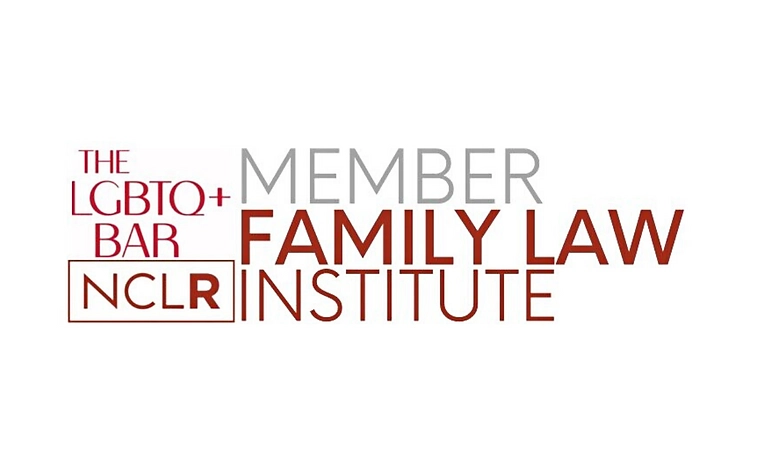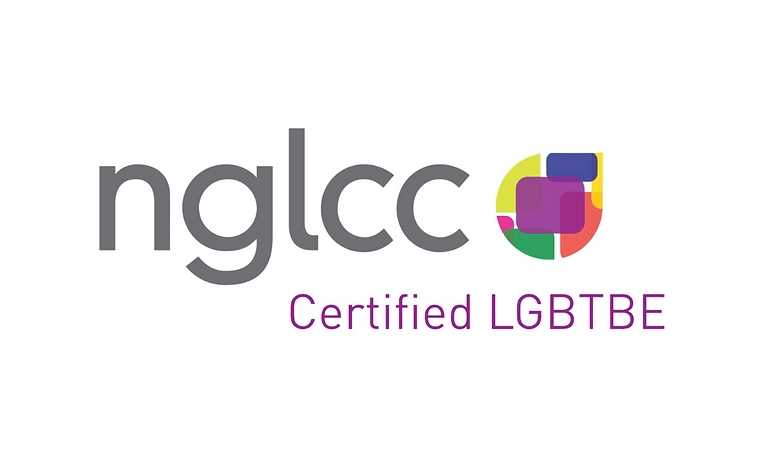Estate Planning Law Firm Protecting Your Future
- Home
- Estate Planning
The Trusted Law Firm to Protect Individuals and Families in North Carolina
Do you have active and pressing concerns about what will happen to your assets after you’re gone? Or perhaps, are you are proactively looking for options so you can put a plan in place and safeguard the ones you love?
Uncertainty and complexity often surround estate planning, leaving many individuals and families in a state of agitation, overwhelm, and frustration. At the Law Office of Crystal M. Richardson, PLLC, we understand the emotional and practical challenges that come with estate planning. Our experienced firm is here to provide clarity and peace of mind through our comprehensive estate planning legal services.
We believe that estate planning should not be a near death experience and we encourage our clients to get their affairs in order before a crisis or unexpected event occurs. Our motto is “if you stay ready, you don’t have to get ready.”
Our office works with individuals and families with varying legal needs, to craft a finely-tailored estate plan that is consistent with your desires and wishes. We work collaboratively, keeping you in control, and giving you the voice of choice throughout the estate planning process. Estate planning affords you the opportunity to name your desired beneficiaries of your estate, rather than giving your inheritance to those closest to you in kinship – which could be someone you may not even know.
The goal is to protect your future while guiding you through the process and helping you avoid costly mistakes.
Let us help you develop a personalized estate plan, so that you do not get the government estate plan provided for you through the State’s Intestate Succession laws.
Estate planning becomes crutial when family members may not respect you or your choice of personal relationships. You will have the option to nominate a personal representative to execute decisions you set forth.
An estate plan not only addresses your finances, but also any joint ownership issues, and is a way to address your concerns about health care decisions and financial choices when you’re unable to speak for yourself.
At the Law Office of Crystal M. Richardson PLLC,
we can help you draft the following documents:
- Last Will and Testament or Trust
- Health Care Power of Attorney
- General/Specific Power of Attorney
- Living Will (also known as Advance Directive)
- HIPPA release authorization
A comprehensive estate plan may also include:
- Ownership transfers
- Updating beneficiary designations for non-probate assets
- Creating a family land trust or LLC
Why do I need an estate plan?
- To place property in the hands of the person you desire to have it
- To protect assets from poor management or waste
- To protect your assets from transferring to your creditors rather than your loved ones
- To avoid excessive taxation or probate fees
- To reduce shrinkage in estate values attributable to probate
- To provide a mechanism for use and management of assets
Practice Area
LET OUR ESTATE PLANNING LAW FIRM HELP TODAY
Solutions for Individual and Family Estate Planning
WILLS
Last Will and Testament
In essence, a Last Will and Testament is a written document that describes how you want your property (assets, such as personal property, vehicles, home, business cash and money in bank accounts) devised after you die. The Last Will and Testament may also provide details such as your burial requests, who you would like to become the Executor of your estate after your death, as well as, other wishes you have for your estate after death. Chapter 31 of The North Carolina General Statutes outline the requirements for a will to be valid.
An attorney at the Law Office of Crystal M. Richardson, PLLC can help you understand these requirements and ensure that the provisions in your will match your desired wishes. If you were to pass away today without having drafted your will, the state of North Carolina will decide who will receive your property through the Intestate Succession laws. Be sure to properly document your wishes to ensure this does not happen. By drafting a will, you are better able to control who gets what when you die. You can avoid confusion and conflict by making your desired wishes clear and conspicuous for the individuals in your life.
Why do I need a Last Will and Testament?
- To appoint a personal representative
- To transfer assets to the intended beneficiaries
- To recommend a guardian for minor children
- To manage assets until intended beneficiary reaches a responsible age
- To address probate issues, such as personal representative bond requirements, simultaneous death, and renunciation.
Advance Directive, also known as a Living Will
A Living Will, also known as an advance directive, is a legal document which details whether you want life-prolonging treatments by medical procedures in any of three circumstances:
- You have an incurable or irreversible condition that will result in your death within a relatively short period of time
- You become unconscious and your health care providers determine that, to a high degree of medical certainty, you will never regain consciousness, and/or
- You suffer from advanced dementia or any other condition which results in substantial loss of your cognitive ability, and your health care providers determine that, to a high degree of medical certainty, the loss is not reversible. Additionally, a Living Will allows you to authorize or direct the withholding or discontinuation of life-prolonging measures, such as respiratory care, or artificial nutrition or hydration.
Many individuals wait until an advanced age to execute a living will document, however, at any moment in time, anyone could experience a life-altering, catastrophic accident, which could cause us to have to make these types of decisions. Don’t wait until it’s too late to document your wishes regarding the prolonging of your life. You may revoke a living will at any time that you are able to communicate health care decisions. You should carefully consider the implication of executing a living will, which documents instructions regarding specific types of treatment that is consistent with your religious beliefs or what you deem is unacceptable for any reason.
TRUSTS
What is a trust?
You may be asking yourself – Do I even need a trust? A trust is an instrument that creates a fiduciary relationship between a trustee (someone who holds property for the benefit of another) and its beneficiaries. It can be created for a variety of reasons, such as asset protection, Medicaid planning, charitable purposes, and so on.
The requirements to create a trust in the State of North Carolina are:
- The Settlor must have capacity to create a trust (note that this differs from the “sound mind” requirement to create a will)
- The Settlor must indicate the intention to create a trust
- The trust must have a definite beneficiary (unless it is for a charitable purpose, care for a pet, or a non-charitable purpose, as provided in NCGS §36C-4-409
- Trust must have duties to perform, and
- The same person is not the sole trustee and the sole beneficiary
The person creating the trust is known as the “settlor” or the “grantor.” The trustee holds legal title to the property in the trust and manages the trust property for the benefit of beneficiaries. A beneficiary is one or more persons who have present or future interest in the trust property. The beneficiaries must be ascertainable either, now or in the future. The Only exception is charitable trusts. Where there is benefit to the public-at-large, so there is no ascertainable beneficiary.
It is important to note that in North Carolina, a trust cannot be created with a sole trustee that is also the sole beneficiary. There must be a second trustee or another beneficiary named in the trust instrument.
Additionally, for a trust to become valid, it must be funded with “trust property.” Funding a trust requires legal transfer of title of the property from the “settlor” to the “trustee.” This means that the settlor must have present ownership interest in the property to be transferred to the trust. When a trust is created, legal title to the trust property is vested in the trustee, while equitable title vests in the beneficiaries.
A trust may be “revocable” or “irrevocable” depending on the type of trust.
Revocable Trust – A revocable trust is an inter vivos trust (created during the settlor’s lifetime), in which the settlor retains the right to revoke or amend the trust without the consent of the trustee or a person holding an adverse interest. It is important to note that in North Carolina, unless stated otherwise, all trusts are presumed to be revocable.
Irrevocable Trust – An irrevocable trust is an inter vivos or testamentary trust (trust created by the testator’s will), in which the settlor or testator does not retain the right to revoke or amend the trust.
Depending on your purpose for the trust, such as tax planning or Medicaid planning purposes, a revocable or irrevocable trust may be created.
Under North Carolina Law, there are four methods to create a trust:
- Transfer of property by a settlor to a person as trustee during the settlor’s lifetime or by will or other disposition taking effect upon the settlor’s death.
- Declaration by the owner of property that the owner holds identifiable property as trustee unless the transfer of title of that property is otherwise required by law.
- Exercise of a power of appointment in favor of a trustee.
- A court judgment, order or decree, including the establishment of a trust.
A (Few) Types of Trusts
Asset Protection Trust
Generally, this type of trust protects assets from exposure to future lawsuits, malpractice claims, bankruptcy claims, creditors’ claims, divorce or remarriage, nursing home expenses, etc.
Charitable Trust
As mentioned above, this type of trust is generally for charitable purposes, while allowing the settlor to take advantage of charitable tax deductions associated with gifts being made.
Education Trust
Generally, this type of trust is created by parents and grandparents for the benefit of their children to fund college education while receiving estate tax benefits.
Grantor Retained Annuity Trust (GRAT) / Grantor Retained Unitrust (GRUT)
Typically, this type of trust is used to remove the full value of the asset and its future appreciation from the Settlor’s taxable estate taxes upon death.
Individual Retirement Account (IRA) Trust
These trusts are created to protect retirement plan assets from lawsuits, creditors, or divorce. They are generally designated for retirement plans, such as, 401Ks, 403(b)s, and the like.
Pet trusts
These types of trusts are created so that there is specific, detailed instruction on how to provide fora pet, and to ensure sufficient funds are available to care for the pet without overburdening the future caretaker.
Lifetime Qualified Terminable Interest Property Trust (QTIP)
This type of trust is typically used for lifetime asset protection or tax planning purposes.
Irrevocable Life Insurance Trust (ILIT)
Generally, this type of trust is created to protect one’s life insurance proceeds from future lawsuits or creditors.
Power of Attorney
Power of Attorney – Healthcare
A Healthcare Power of Attorney is a legal document that allows an individual to choose who they want to designate as your health care agent to make decisions for you when you cannot make or communicate those decisions. The healthcare power of attorney can express your wishes regarding life-prolonging measures, mental health treatment, and any other health care decisions to the extent that you express specific limitations or restrictions.
The Healthcare Power of Attorney is fiduciary in nature, which means that your health care agent is obligated to use due care and to act in your best interest, in accordance with your wishes.
You may authorize the health care agent(s) to consent to the withholding or withdrawal of life-prolonging measures, give direction regarding medical and/or mental health treatments, and routine medical decisions.
A Healthcare Power of Attorney may contain or incorporate by reference any lawful guidelines or directions relating to your health care as you deem appropriate. In the event of death, you may authorize your health care agent to donate your organs and/or authorize an autopsy. A health care power of attorney will remain effective if a court appoints a guardian to act on your behalf, unless the court issues an order suspending the authority of the health care agent. You may indicate in the document your choice of a guardian in the event guardianship proceedings are commenced.
To be effective, a Healthcare Power of Attorney must be witnessed by 2 persons and certified by a notary public. You may revoke a HealthCare Power of Attorney at any time that you are able to communicate health care decisions. Each healthcare agent named must receive the revocation. If you’ve named your spouse as your healthcare agent, then the authority of that healthcare agent will be revoked upon the entry of a divorce or separation between the principal and the agent. This document should be reviewed periodically, especially in the event of divorce, or death or disability of a named agent, to ensure that they continue to reflect your desires about health care decisions.
Power of Attorney – Financial
A Financial Power of Attorney is a legal document that allows you, the Principal, to select an “attorney-in-fact,” also known as an agent, to act on your behalf regarding your financial or property matters. The powers that you grant your agent can be specific or broad. In North Carolina, a power of attorney, whether broad or specific, is “durable” and remains in effect even after incapacity. This will allow someone to act on your behalf to handle your affairs in time of crisis. A Durable Power of Attorney may allow an agent to powers, such as, but not limited to:
- Buying or selling property
- Disposing of or purchasing personal property
- Buying, selling, or trading stocks, bonds, shares, securities and commodity transactions
- Authorizing banking transactions
- Authorizing Safe deposits
- Handling business operating transactions
- Handling personal affairs
- Managing applications for social security and unemployment benefits
- Donating gifts to individuals and charities
The relationship between the Principal and agent is fiduciary in nature, meaning that the Attorney-of-Fact must act in good faith and with your best interest in mind. The rules regarding power of attorney are governed by the North Carolina Uniform Power of Attorney Act, NCGS Chapter 32C.
Durable Attorney is effective immediately upon execution, or it may be effective upon an event/contingency named by the Principal, such as when the Principal has been incapacitated. If the Principal requests that the Power of Attorney is effective only upon the incapacity of the principal, then it must be determined in writing by two individuals (either a physician, a licensed psychologist, or both) that the Principal is incapacitated within the meaning of the statute. If that doesn’t occur, then the family will have to petition the court for a guardianship proceeding, which is the much costlier and cumbersome option in comparison to executing the Durable Power of Attorney with broad, sweeping powers. An attorney can help you draft the language to make the power of attorney document effective for your needs.
North Carolina Estate Planning Law Firm to Create Protection and Future Plans
At the Law Office of Crystal M. Richardson, PLLC, we understand every estate planning matter is unique and we’re committed to crafting a strategy equally as unique, if needed.
Sometimes, clients will come to us with estate planning matters which need an urgent resolution because the issue is active and ongoing. In those situations, particularly, our legal strategy aims to reach a swift and favorable outcome for our client to maximize the financial savings or minizine the financial loss for our client. In every matter, we weight the options to resolve the matter and resolve the issue.
Contact us today to schedule an initial assessment.

FAQs
1. Q: What is estate planning, and why is it important?
2. Q: Do I need a will, and what happens if I die without one?
3. Q: What is the role of a power of attorney, and how does it work in North Carolina?
4. Q: How can I minimize estate taxes for my heirs?
5. Q: What is probate, and how does it work in North Carolina?
6. Q: Can I update my will and estate plan after it's been created?
7. Q: What is a living will, and how does it work?
8. Q: How can a trust benefit my estate plan?
9. Q: Can I disinherit someone in my will?
10. Q: What steps should I take to protect my business in my estate plan?
11. Q: Can I include my digital assets, such as my Facebook and Instagram accounts, in estate plan?
12. Q: Can I use life insurance as part of my estate planning strategy?
13. Q: What is the role of an executor, and how do I choose one?
14. Q: How can I ensure my estate plan is legally valid in North Carolina?





Contact Us
Phone: 336-805-6200
Email: info@CrystalRichardsonLaw.com
Mailing Address
265 Eastchester Drive
Suite 133, #111
High Point, NC 27262
Business Hours
Mon to Thurs: 9 a.m. to 6 p.m.
Fri: 9 a.m. to 3 p.m.
Sat and Sun: Closed